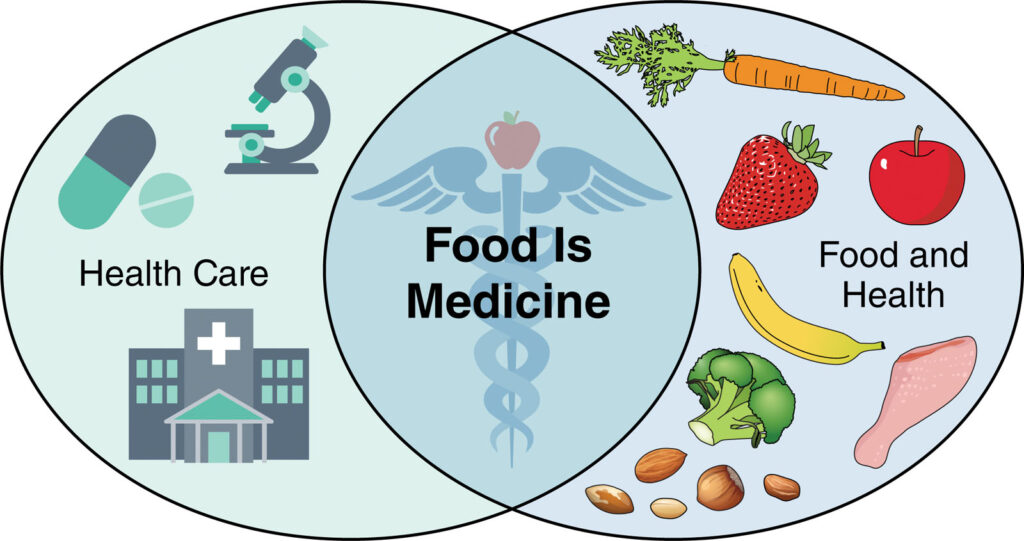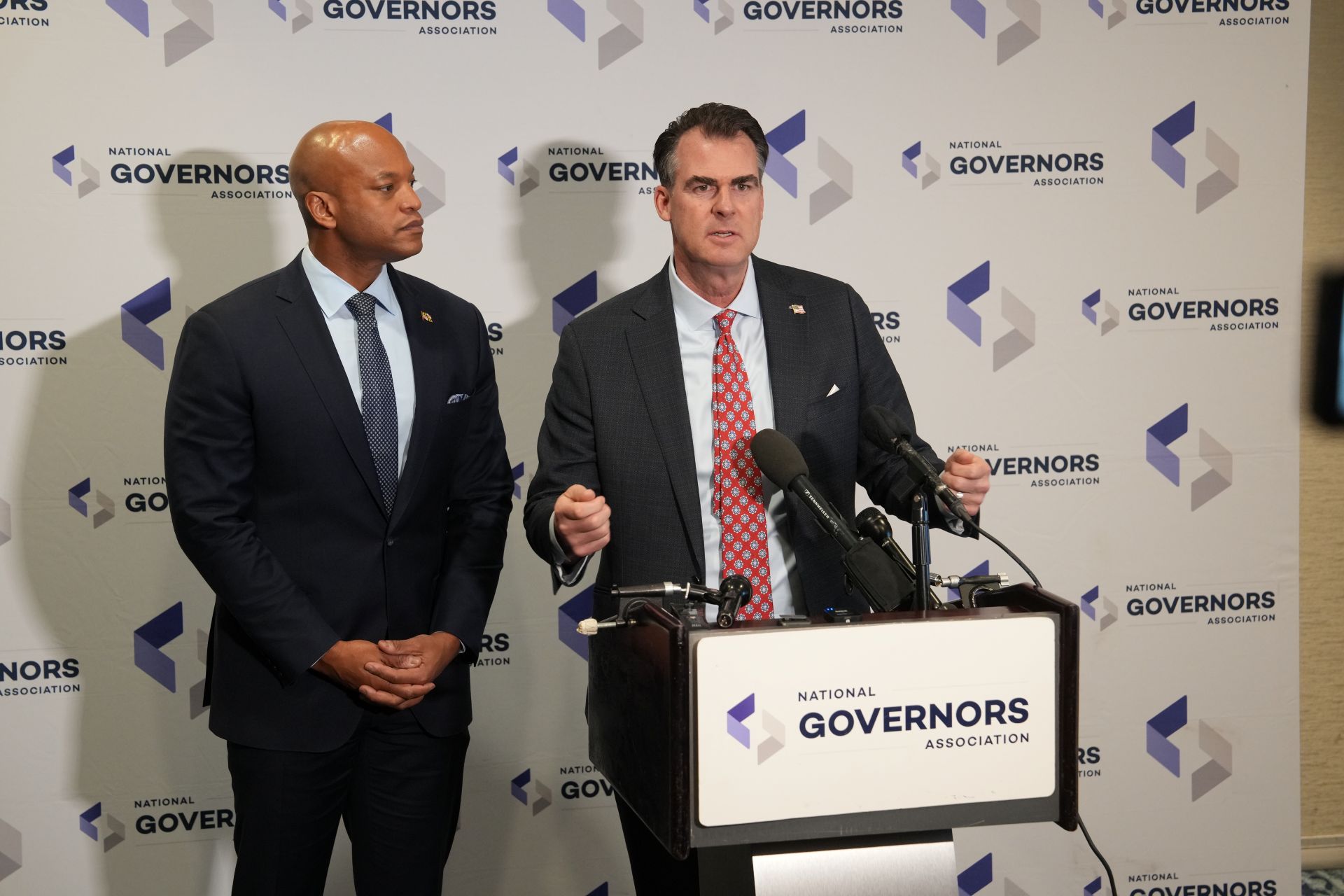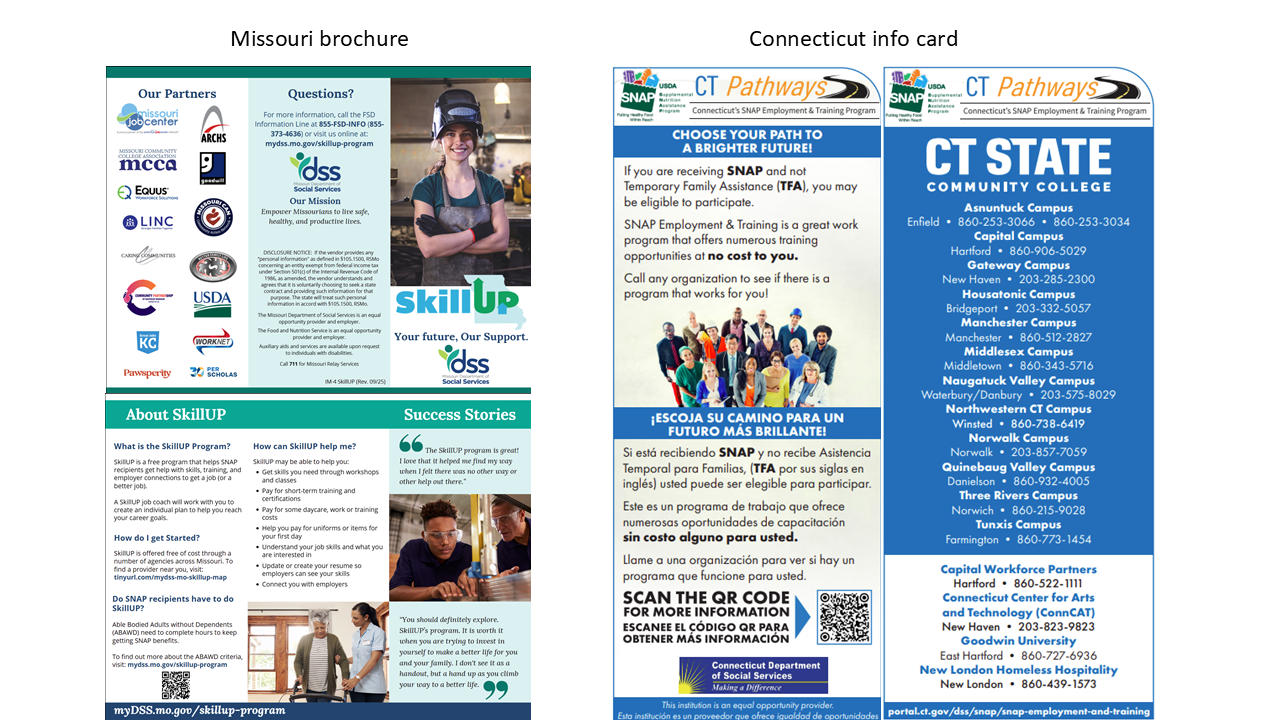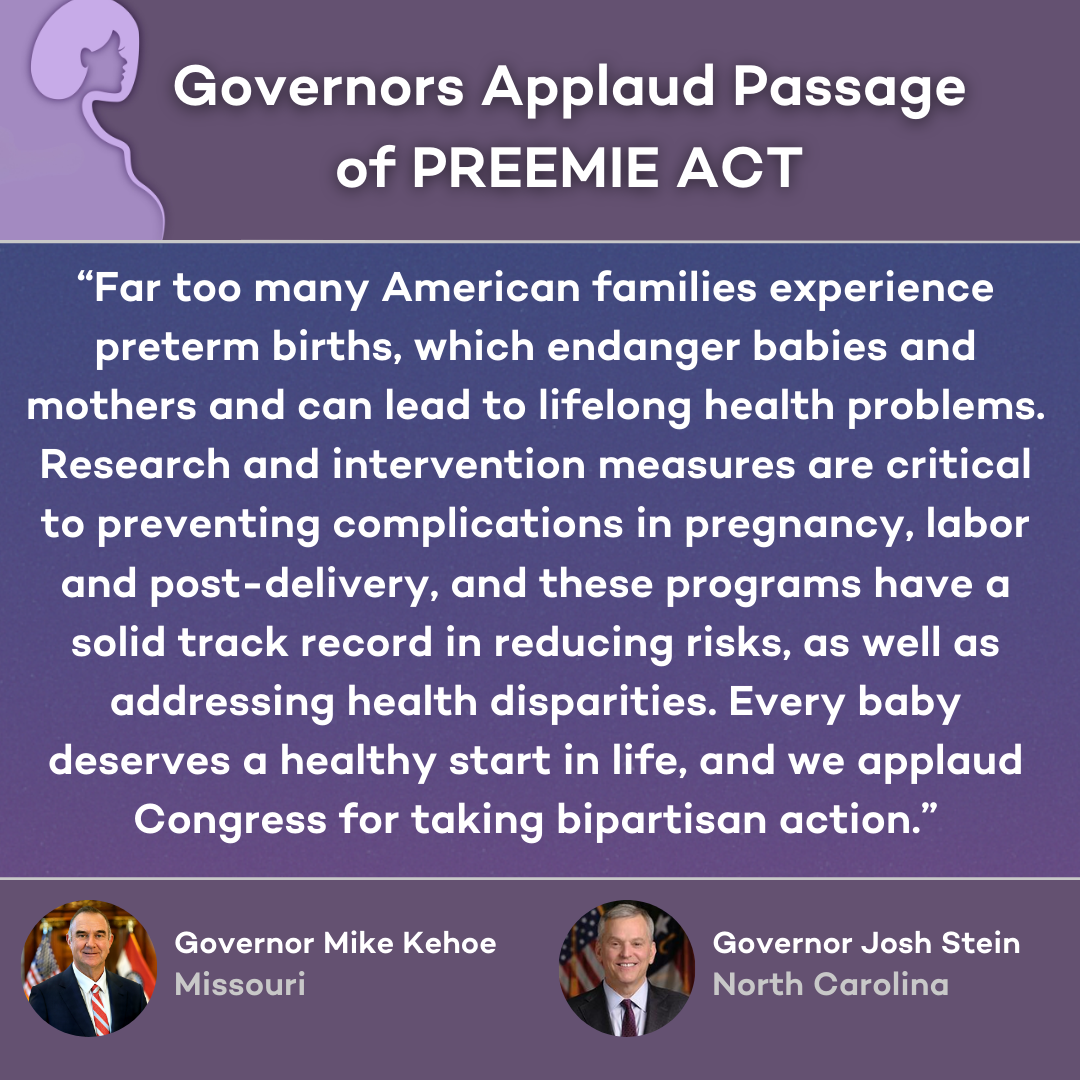Across the country, Governors are driving a new phase of healthcare transformation—one that positions healthy food as a reimbursable, clinically relevant intervention to address chronic disease. While the connection between diet and health is well established, what’s emerging is the integration of food-based services into Medicaid and other healthcare delivery systems. Known as Food is Medicine (FIM), these interventions—including medically tailored meals, produce prescriptions and medically tailored groceries—offer states a policy-relevant tool to reduce avoidable healthcare costs and improve outcomes for individuals with diet-related conditions. The opportunity to build healthier communities through strategic food interventions has never been timelier or more actionable.
Defining Food Is Medicine
The American Heart Association defines Food is Medicine as the provision of healthy food —such as medically tailored meals, groceries or produce prescriptions—to treat or manage specific clinical conditions in a way that is integrated with and paid for by the healthcare system. These targeted interventions differ from nutrition assistance programs like Supplemental Nutrition Assistance Program (SNAP) and Special Supplemental Nutrition Program for Women, Infants and Children (WIC), which are designed to address food insecurity at the population level. Instead, FIM is focused on individuals whose diet-related needs are part of a clinical care plan and tied to a diagnosed chronic condition, and the intervention is paid for and delivered by the health care system.

Why Now: Health, Cost and Policy Alignment
Food as Medicine is gaining traction partly because of its potential to address some of the most pressing challenges in public health. According to the Centers for Medicare & Medicaid Services, more than 90% of the $4.5 trillion the U.S. spends annually on healthcare goes toward treating chronic conditions, many of which are closely linked to diet. Conditions such as type 2 diabetes, hypertension and heart disease are driving preventable healthcare costs, straining state budgets, and disproportionately affecting low-income and historically under-resourced populations.
For Governors seeking cost-effective ways to address chronic disease, FIM may represent an opportunity to integrate evidence-based nutrition support into healthcare delivery. More importantly, these interventions are not abstract. Governors are testing them through Medicaid Section 1115 demonstration waivers, managed care flexibility and public-private partnerships.
Governors and States Leading the Way
According to KFF’s waiver tracker, 16 states (California, Colorado, Delaware, Hawai‘i, Illinois, Maine, Massachusetts, Nevada, New Jersey, New Mexico, New York, North Carolina, Oregon, Pennsylvania, Rhode Island and Washington), have approved or pending Section 1115 demonstrations that provide coverage for nutrition interventions, including medically tailored meals and groceries. Many of these initiatives are directly supported by gubernatorial leadership and cross-agency collaboration:
- CMS approved a five-year extension for Delaware, the “Delaware Diamond State Health Plan (DSHP) Section 1115 Demonstration.” The approval includes authorization for new services for postpartum enrollees, including coverage of two home-delivered meals per day or one medically appropriate shelf stable food box.
- Oregon Governor Tina Kotek’s health policy agenda continues to support the state’s Health-Related Social Needs (HRSN) benefit, approved under a five-year Medicaid waiver in 2022. The state is using this authority to fund medically tailored meals and groceries for individuals with certain chronic conditions, emphasizing equity and upstream prevention.
- North Carolina’s Healthy Opportunities Pilots, initiated under former North Carolina Governor Roy Cooper, have become a national model for testing the use of Medicaid to cover non-medical services, including food, housing and transportation.
- Under Massachusetts Governor Maura Healey’s leadership, Massachusetts is leveraging its 1115 waiver to expand medically tailored meal delivery in partnership with community-based organizations.
- Governor Kevin Stitt of Oklahoma recently signed the Food is Medicine Act (SB 806), creating certain incentives for Medicaid contracted entities; providing for certain expansion of nutrition services.
In addition to these initiatives, Colorado, New York, Washington, New Jersey are piloting or expanding food-based care models within their Medicaid programs. Many align these efforts with broader state goals around health equity, behavioral health integration and rural health access.
For additional context, the Kaiser Family Foundation’s Medicaid Waiver Tracker (May 2025) provides detailed information on approved and pending Section 1115 waivers by state, including those addressing social drivers of health, like nutrition.
The Challenge Ahead: From Practice to Policy
Despite the early momentum, scaling FIM sustainably requires more than promising pilot results. The current evidence base, while growing, is still limited in scope.
Governors may consider creating more robust data that resonates with budget officials, Medicaid directors and federal regulators to make FIM a part of the Medicaid coverage landscape. That includes demonstrating cost-effectiveness, clinical impact and operational feasibility across diverse populations.
Through executive leadership, Governors may consider:
- Setting a statewide vision for integrating Food as Medicine into healthcare systems;
- Directing collaboration across Medicaid, public health and social service agencies;
- Investing in data and evaluation infrastructure; and
- Promoting partnerships with healthcare providers, community organizations and researchers.
The American Heart Association’s Health Care by Food™ initiative, works directly with states to support these efforts. The initiative provides technical assistance in collaboration with the U.S. Department of Health and Human Services to design FIM interventions that are evidence-based and scalable while also helping states develop evaluation plans that meet both scientific and policy standards.
Looking Forward
As the U.S. healthcare system continues its shift toward value-based care, Food as Medicine is no longer a foreign concept. It is a pragmatic, promising solution with bipartisan support and measurable health impact. Governors and their teams have a unique window of opportunity to lead this change: not just by piloting new programs but by building the policy, infrastructure and evidence necessary to make healthy food a durable part of the healthcare system.
For more information about NGA’s Food as Medicine work and RX for a Healthier America, please contact Brittney Roy-Morales.
Additional Resources
- Food Is Medicine: A Presidential Advisory from the American Heart Association
- What Is ‘Food Is Medicine,’ Really? Policy Considerations on the Road to Health Care Coverage
- Differentiating ‘Food Is Medicine’ from Food and Nutrition Programs and Policies
- AHA testimony to the Senate Health, Education, Labor, and Pensions (HELP) Committee, Subcommittee on Primary Health and Retirement Security, for the hearing entitled “Feeding a Healthier America: Current Efforts and Potential Opportunities for Food is Medicine.” (May 21, 2024)
- Medicaid Nutrition Supports Associated With Reductions In Hospitalizations And ED Visits In Massachusetts, 2020–23












